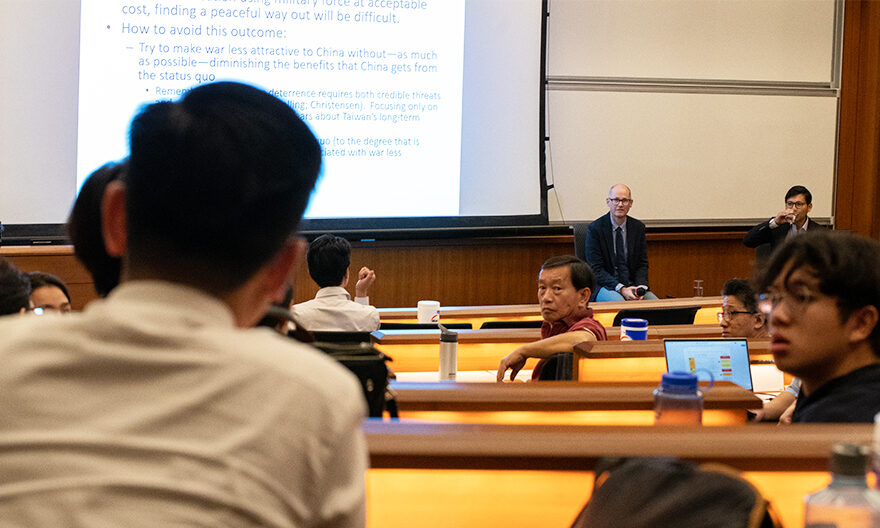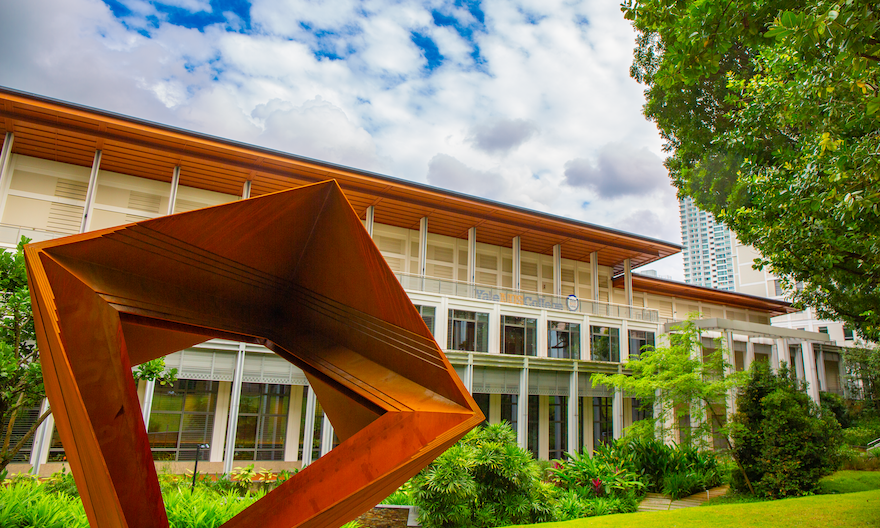How Jim Rogers sees the world and what he’s doing about it
Jim Rogers may be one of the most well-travelled people of all time, but he found time in between journeys to spend a lively Thursday night addressing a packed audience at the Yale-NUS College President’s Speaker Series on 19 February 2014.
Rogers is a 1964 graduate of Yale University, legendary Wall Street investor, Columbia Business School professor, bestselling author of six books, and holder of multiple Guinness World Records for two round-the-world drives. During his talk, he offered wide-ranging predictions regarding the world’s political, social, and economic future, touching on topics as diverse as the importance of learning Mandarin, to Korean demographic shifts and the future of Irish farming.
This passion for understanding how the world works was nursed by his study of history as an undergraduate at Yale, and philosophy as a graduate student at Oxford. He described his education as a transformation that taught him not only the importance of hard work, but also the seminal importance of doing what you love to do. He encouraged his audience to expose themselves to the complexities of the world, both intellectually and physically, so that they discover their own passions before choosing careers.
“Work at it,” the 71-year-old said, “and figure out what you love the most. If you do it, then you will be extremely happy and successful.”
For himself, history has provided a window not only to the past but also into the future: a disciplined approach to understanding where the world is coming from, and where it is heading. Rogers added, “If you want to be successful at life, you should study history and philosophy,” because “whatever you think today is not going to be true tomorrow”.
Working on Wall Street provided an opportunity to put his passion for prediction to the test — to learn about the world and forecast its complexities. After a tremendously successful but brief career in New York, Rogers retired at the age of 37 to travel the world that he had so much success anticipating. On two world tours, one of which took three years and covered 245,000 kilometres through 116 countries, he observed shifting economic and political realities first hand.
Travelling, Rogers declared, is crucial.
“It is extremely important that everybody spend time outside of their own country. You will learn a great deal more about yourselves, about your own country, and about the world if you do.”
And he is proof of this claim, for his travels have led him to many conclusions regarding the world of today and tomorrow.
First, Rogers predicts that the 21st century will be China’s century, in the same way that the 20th was the United States’ and the 19th Great Britain’s. For this reason, he has moved his family to multilingual Singapore, so that his two daughters could grow up speaking both Mandarin and English. His most recent book, Street Smarts, analyses the strengths of Singapore’s social system and explores ways to make it even better.
Second, Rogers sees economic opportunities throughout Asia, including emerging economies like Myanmar and the Korean Peninsula, which he expects to be unified in the not-too-distant future.
Third, Rogers believes in the power of demographics. He expounded on Japan’s 21st century decline due to an ageing population, and had much to say about the rise in gender equality in South Korea, China and India.
“One of the best things you can do is to be an 18-year-old Korean girl,” Rogers said. “That’s why I had girls, by the way.” His logic is that the growing shortage of females caused by gender inequalities at birth in those countries would naturally lead to increased gender equality in those states.
Fourth, Rogers believes that the world’s economy moves cyclically, between periods when finance is more important than production and vice-versa, and he says that we are heading towards the latter.
“Soon, if not already, it will be better to be a farmer than a stockbroker,” he said. “Don’t major in economics and then get an MBA, unless you really love it.”
But his most important discovery has been the importance of thinking independently and maintaining a healthy skepticism. Failing to question what we read, hear, and see, he says, leaves us dependent on other people’s self-interests and robs us of an accurate view of world events.
Rogers warns that this is especially true for girls: “Be very wary of the boys. Be skeptical of everything they say. Remember South Korea: in the 21st century, they will need you more than you need them.”
—
Missed it? Click here to watch this on our main YouTube channel.




